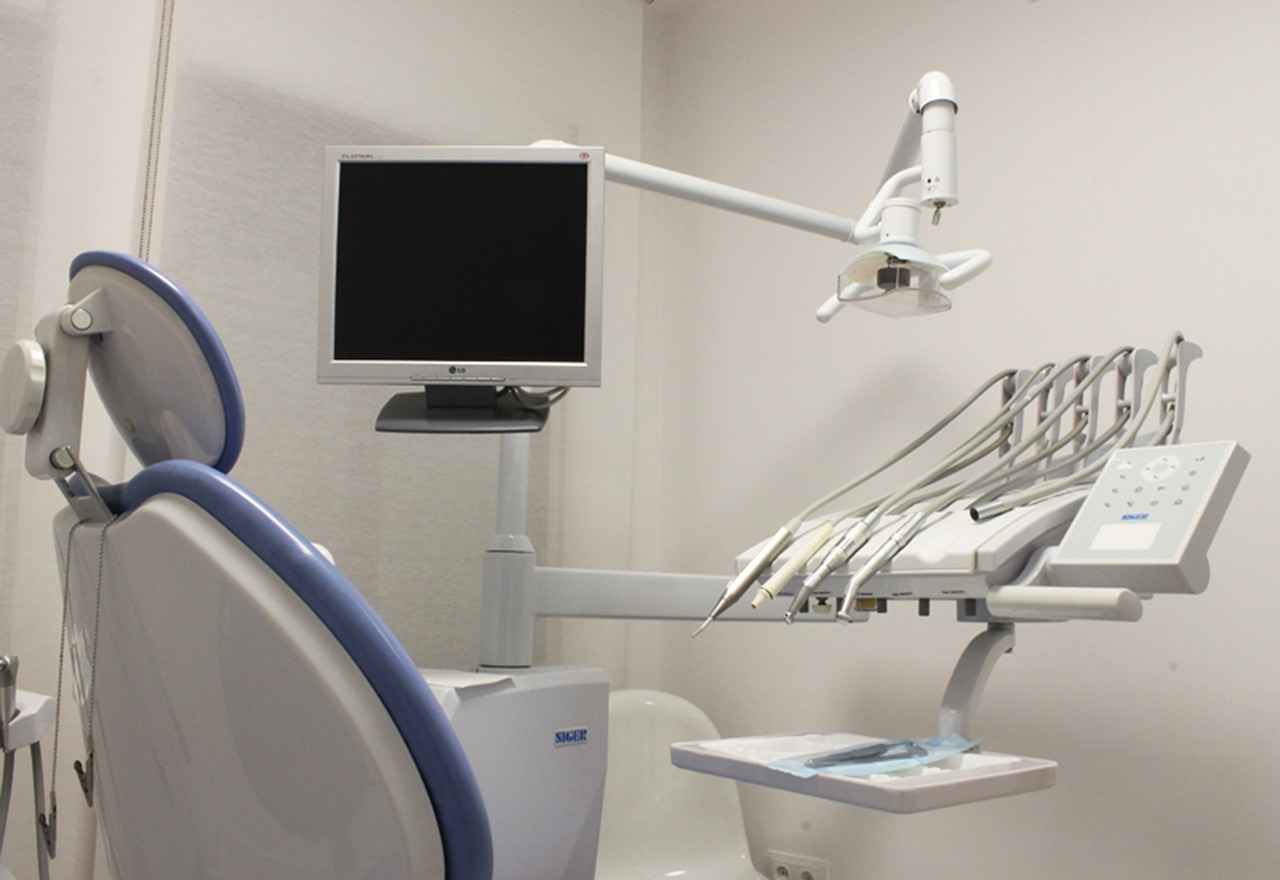Rheumatology is a vital branch of medicine that deals with the diagnosis and treatment of rheumatic diseases, which encompass a wide range of conditions affecting the joints, muscles, and connective tissues. These diseases, including rheumatoid arthritis, lupus, and osteoarthritis, can severely impact an individual’s quality of life, making it crucial to find a high-quality rheumatology clinic or hospital. Patients seeking care should focus on several key factors to ensure they receive optimal treatment.
When selecting a rheumatology clinic, one must consider its accreditation and certification. Clinics accredited by reputable organizations, such as the American College of Rheumatology, adhere to high standards of care that reflect their commitment to patient safety and effective treatment protocols. Such accreditation often indicates that the clinic employs evidence-based practices, which are essential for managing chronic conditions.
Moreover, the expertise of healthcare professionals is paramount. Patients should seek clinics with board-certified rheumatologists who have specialized training in managing rheumatic diseases. The experience and qualifications of the medical staff can significantly influence treatment outcomes. For example, a study published in the Journal of Rheumatology found that patients treated by experienced rheumatologists reported better health outcomes and satisfaction levels.
In addition to professional qualifications, patient reviews and testimonials are invaluable resources. Online platforms like Healthgrades and RateMDs allow patients to share their experiences, providing insights into the quality of care. Positive feedback often serves as a reliable indicator of a clinic’s effectiveness and patient satisfaction.
Location and accessibility are also critical factors. Patients with mobility issues may find it challenging to travel long distances for appointments. Therefore, clinics that offer telehealth services can be particularly beneficial, allowing patients to consult with specialists from the comfort of their homes. This innovation has been supported by research indicating that telemedicine can improve access to care and patient adherence to treatment plans.
Understanding insurance coverage is essential when selecting a clinic. Patients should verify whether the clinic is in-network with their insurance provider to minimize out-of-pocket expenses. Many clinics also offer payment plans or financial assistance programs, which can alleviate the financial burden associated with ongoing treatment.
Finally, ongoing support and follow-up care are crucial for managing chronic rheumatic diseases effectively. Clinics employing multidisciplinary teams, including physical therapists and nutritionists, can provide comprehensive care tailored to individual needs. Access to educational resources and support groups can empower patients, fostering a collaborative approach to health management.
In conclusion, finding a reputable rheumatology clinic involves careful consideration of various factors, including accreditation, professional expertise, patient feedback, and accessibility. By prioritizing these elements, patients can make informed decisions that enhance their healthcare experience and improve their management of rheumatic diseases.

Understanding Rheumatology and Its Importance
Rheumatology is a vital subspecialty in the field of medicine that addresses the complexities of rheumatic diseases, which include a wide range of conditions affecting the joints, muscles, and connective tissues. These diseases, such as rheumatoid arthritis, lupus, and osteoarthritis, can lead to debilitating pain, reduced mobility, and a significant decline in quality of life. Therefore, understanding the role of rheumatology is essential for patients seeking effective management and treatment options.
At the core of rheumatology is the diagnosis and management of chronic inflammatory conditions. Research indicates that early intervention can dramatically alter the course of these diseases. For instance, a study published in the Annals of Rheumatic Diseases highlighted that patients with rheumatoid arthritis who began treatment within the first three months of symptom onset had markedly better outcomes than those who delayed therapy.
Moreover, rheumatologists are not only skilled in prescribing medications but also in devising comprehensive treatment plans that may include physical therapy, lifestyle modifications, and patient education. This holistic approach is crucial, as managing rheumatic diseases often requires a multifaceted strategy. For example, a patient with systemic lupus erythematosus may benefit from not only medication to control inflammation but also dietary changes to improve overall health.
Recent advancements in rheumatology have introduced innovative therapies, such as biologic agents and targeted synthetic DMARDs (Disease-Modifying Anti-Rheumatic Drugs). These treatments have revolutionized care for many patients, leading to improved disease control and enhanced quality of life. According to a review in the Journal of Clinical Rheumatology, patients treated with biologics reported significant reductions in pain and functional disability.
Furthermore, understanding the importance of rheumatology extends beyond individual patient care; it encompasses public health implications as well. The prevalence of rheumatic diseases is rising globally, and with this increase comes a greater need for specialized care. The World Health Organization has recognized the impact of these conditions, emphasizing the necessity for accessible rheumatology services in healthcare systems worldwide.
In conclusion, rheumatology plays a critical role in the management of rheumatic diseases, significantly influencing patients’ health outcomes and quality of life. By recognizing the importance of timely diagnosis and comprehensive care, patients can better navigate their healthcare journey and access the support they need. Engaging with rheumatology services not only aids individual patients but also contributes to broader public health efforts aimed at addressing the challenges posed by these chronic conditions.

Key Factors to Consider When Choosing a Clinic
When selecting a rheumatology clinic, it is essential to consider a multitude of factors that can significantly influence the quality of care you receive. The complexity of rheumatic diseases necessitates a clinic that not only meets high standards of medical practice but also offers a supportive environment tailored to individual patient needs.
Accreditation is one of the first aspects to evaluate. A clinic accredited by reputable organizations, such as the American College of Rheumatology, demonstrates a commitment to adhering to established protocols and best practices. Accreditation ensures that the clinic meets specific quality benchmarks, which can lead to improved patient outcomes. It is advisable to inquire about the clinic’s accreditation status and any relevant certifications that may indicate specialized care in rheumatology.
Another critical factor is the expertise of healthcare professionals. Look for clinics staffed by board-certified rheumatologists who possess extensive training and experience in managing rheumatic diseases. A well-qualified team often includes not just rheumatologists but also nurse practitioners, physician assistants, and allied health professionals who can contribute to a comprehensive treatment plan. Researching the educational background and clinical experience of these professionals can provide insight into their capability to manage complex cases effectively.
The range of services offered at a clinic is also vital. Comprehensive care often includes access to diagnostic imaging, laboratory services, and therapeutic interventions such as physical therapy or occupational therapy. Consider whether the clinic provides a multidisciplinary approach that integrates various specialties, which can enhance the effectiveness of treatment. For instance, clinics that offer on-site physical therapy may facilitate easier access to coordinated care, thereby improving recovery times and patient satisfaction.
Patient reviews and testimonials can serve as valuable resources when assessing a clinic’s reputation. Websites like Healthgrades and RateMDs allow patients to share their experiences, providing prospective patients with a clearer picture of the clinic’s service quality. Positive feedback regarding staff professionalism, wait times, and treatment efficacy can be indicators of a supportive environment conducive to healing.
Lastly, consider the location and accessibility of the clinic. Proximity to your home or workplace can influence your ability to attend appointments regularly, which is crucial for managing chronic conditions. Additionally, inquire about the availability of telehealth services, which can provide convenient access to care, especially for patients with mobility challenges.
In conclusion, selecting a rheumatology clinic requires careful consideration of accreditation, healthcare professional expertise, service offerings, patient feedback, and accessibility. By thoroughly evaluating these factors, patients can make informed decisions that lead to better health outcomes and a more satisfactory healthcare experience.
Accreditation and Certification
play a pivotal role in ensuring that rheumatology clinics provide high-quality care to patients suffering from various rheumatic diseases. These diseases, which include rheumatoid arthritis, lupus, and osteoarthritis, require specialized knowledge and treatment protocols. Without proper accreditation, patients may be at risk of receiving substandard care, which can lead to complications and diminished quality of life.
Clinics that are accredited by recognized medical bodies, such as the American College of Rheumatology (ACR), demonstrate a commitment to maintaining rigorous standards in patient care. Accreditation entails a thorough evaluation process that assesses the clinic’s adherence to established guidelines, including diagnostic procedures, treatment protocols, and patient safety measures. For instance, the ACR sets forth evidence-based guidelines for the treatment of rheumatoid arthritis, which clinics must follow to ensure optimal patient outcomes.
Moreover, accreditation is not merely a badge of honor; it is often a requirement for clinics to participate in various healthcare programs, including insurance networks. This means that accredited clinics are more likely to be covered by insurance plans, making them more accessible to patients. In a study published in the Journal of Rheumatology, researchers found that patients treated at accredited facilities reported higher satisfaction levels and better health outcomes compared to those at non-accredited facilities.
In addition to national standards, local recognition also plays a significant role in assessing the quality of care a clinic provides. Awards from local healthcare organizations or community feedback can serve as indicators of a clinic’s reputation. For example, a clinic that has received accolades for patient satisfaction or innovation in treatment may be more likely to provide a positive healthcare experience.
Furthermore, the expertise of healthcare professionals within accredited clinics is paramount. Board-certified rheumatologists are required to complete extensive training and ongoing education to stay current with the latest advancements in the field. This ensures that the care provided is not only compliant with established standards but also incorporates the latest research findings and treatment modalities.
In summary, the importance of accreditation and certification in rheumatology clinics cannot be overstated. It serves as a guarantee of quality, ensuring that patients receive care that meets high standards. When seeking treatment for rheumatic diseases, patients should prioritize clinics with recognized accreditation, as this is a strong indicator of the clinic’s commitment to providing safe, effective, and comprehensive care.
National and International Standards
Accreditation plays a crucial role in healthcare, particularly in specialized fields such as rheumatology. Clinics that are accredited by esteemed organizations, like the American College of Rheumatology (ACR), showcase their dedication to delivering high-quality care. This commitment is evident through their adherence to evidence-based guidelines and best practices that have been established to ensure optimal patient outcomes.
The ACR sets rigorous standards that clinics must meet to achieve accreditation. These standards encompass various aspects of patient care, including diagnosis, treatment protocols, and ongoing patient management. For instance, accredited clinics often implement standardized treatment plans for common rheumatic diseases, such as rheumatoid arthritis and lupus. This not only enhances the consistency of care but also improves the overall effectiveness of treatments.
Research indicates that patients treated in accredited facilities report higher satisfaction levels and better health outcomes. A study published in the Journal of Rheumatology found that patients receiving care from accredited clinics had significantly lower rates of disease progression compared to those in non-accredited settings. This underscores the importance of choosing a clinic that adheres to national and international standards.
Furthermore, accreditation serves as a benchmark for quality assurance. Clinics that undergo regular evaluations by accrediting bodies are more likely to stay updated with the latest advancements in rheumatology. This includes integrating new therapies and technologies that can enhance patient care. For example, the incorporation of biologic therapies has revolutionized the treatment of various rheumatic conditions, and accredited clinics are often at the forefront of utilizing these innovative approaches.
In addition to national standards, local recognition and awards can also signify a clinic’s reputation within the community. Many accredited clinics participate in community outreach programs, further solidifying their commitment to patient education and preventive care. These initiatives not only improve public awareness of rheumatic diseases but also foster a supportive environment for patients.
When considering a rheumatology clinic, it is essential to inquire about their accreditation status. Patients should feel empowered to ask about the clinic’s adherence to ACR guidelines and how they implement these standards in their daily practice. This inquiry is not just a formality; it is a vital step in ensuring that patients receive the best possible care.
In conclusion, clinics accredited by organizations like the American College of Rheumatology exemplify a commitment to excellence in patient care. By adhering to established guidelines and continuously striving for improvement, these clinics not only enhance the quality of care but also contribute to better health outcomes for patients with rheumatic diseases.
Local Recognition and Awards
serve as vital indicators of a clinic’s standing within the community, providing insight into patient satisfaction and the overall quality of care offered. These accolades can come from various sources, including health organizations, patient advocacy groups, and community boards. They often reflect the clinic’s commitment to excellence and its ability to meet the diverse needs of its patients.
For instance, a clinic that receives the Patient-Centered Medical Home designation demonstrates a focus on delivering coordinated, comprehensive care that prioritizes patient needs. This recognition often involves rigorous evaluation against established standards, ensuring that the clinic not only meets but exceeds expectations in delivering healthcare services.
Moreover, awards such as the Best of Health or Community Choice Awards are typically based on patient votes and testimonials, which highlight the clinic’s reputation among those it serves. Such recognitions can indicate a high level of patient trust and satisfaction, essential elements for effective healthcare delivery.
Research supports the idea that patient satisfaction is closely linked to clinical outcomes. A study published in the Journal of Healthcare Management found that facilities with higher patient satisfaction scores tend to have better clinical performance metrics. This finding underscores the importance of local awards as not just symbolic accolades but as tangible evidence of a clinic’s effectiveness in delivering quality care.
In addition, local awards often encourage clinics to maintain high standards. When clinics are recognized for their achievements, they are more likely to invest in staff training, adopt innovative treatment protocols, and enhance patient engagement strategies. For example, a rheumatology clinic awarded for excellence in patient education may implement more robust educational programs, leading to better patient adherence to treatment plans.
Furthermore, awards can also foster a sense of community. Clinics that actively participate in local health initiatives and receive recognition for their efforts often build stronger relationships with their patients and the surrounding community. This connection not only enhances the clinic’s reputation but also contributes to a supportive environment where patients feel valued and understood.
In summary, local recognition and awards are crucial markers of a rheumatology clinic’s reputation. They reflect patient satisfaction, adherence to high standards of care, and a commitment to community engagement. When choosing a clinic, prospective patients should consider these accolades as a significant factor, as they often correlate with better health outcomes and overall patient experiences.
Healthcare Professionals’ Expertise
When seeking care for rheumatic diseases, the expertise of healthcare professionals is paramount. Rheumatologists, who specialize in this field, must possess not only comprehensive medical training but also board certification in rheumatology. This certification indicates that they have undergone rigorous evaluations and have demonstrated proficiency in diagnosing and treating complex rheumatic conditions.
In addition to board certification, it is crucial to consider the specialized training that rheumatologists receive in managing rheumatic diseases. Many rheumatologists pursue additional fellowship training, which provides them with in-depth knowledge of conditions such as rheumatoid arthritis, lupus, and scleroderma. This specialized education equips them with the skills necessary to develop personalized treatment plans, ensuring that patients receive the most effective care.
Moreover, the experience of healthcare professionals plays a significant role in patient outcomes. A study published in the Journal of Rheumatology found that patients treated by experienced rheumatologists had better disease control and fewer complications compared to those treated by less experienced providers. This highlights the importance of selecting a clinic where practitioners have a proven track record in managing rheumatic diseases.
The support staff in rheumatology clinics also contribute to the overall quality of care. Trained nurses, physician assistants, and other allied health professionals play critical roles in patient education, treatment administration, and follow-up care. Their expertise in rheumatology not only enhances patient experiences but also ensures that patients receive comprehensive care tailored to their specific needs.
To facilitate informed decision-making, patients should consider the following factors when evaluating the qualifications of rheumatologists and their support staff:
- Board Certification: Verify that the rheumatologist is board-certified and specializes in rheumatology.
- Fellowship Training: Look for additional fellowship training in specific rheumatic conditions.
- Years of Experience: Inquire about the number of years the rheumatologist has been practicing in the field.
- Patient Outcomes: Seek clinics with documented positive patient outcomes and satisfaction rates.
In conclusion, the qualifications and experience of rheumatologists and their support staff are critical in ensuring effective management of rheumatic diseases. By prioritizing board-certified professionals with specialized training and significant experience, patients can enhance their chances of receiving optimal care, ultimately leading to better health outcomes.

Patient Reviews and Testimonials
serve as a vital resource for individuals seeking rheumatology services, offering a window into the experiences of others who have navigated similar health challenges. These insights can illuminate the quality of care provided at a clinic, revealing not only the effectiveness of treatments but also the level of compassionate care that patients receive. A growing body of research indicates that patient satisfaction is closely linked to positive health outcomes, making these reviews particularly significant.
For instance, a study published in the Journal of Rheumatology found that patients who reported high satisfaction levels were more likely to adhere to treatment regimens and attend follow-up appointments. This adherence can lead to improved management of chronic conditions such as rheumatoid arthritis and lupus. Conversely, negative reviews often highlight issues related to communication, wait times, and staff professionalism, which can deter potential patients from seeking care at a particular facility.
Online platforms such as Healthgrades and RateMDs have emerged as essential tools for prospective patients. These websites allow individuals to read firsthand accounts of others’ experiences, providing a broader understanding of what to expect. For example, a clinic with numerous positive reviews may indicate a strong track record in patient care, while consistent complaints regarding access to specialists or long wait times could raise red flags.
Moreover, personal recommendations from trusted sources—such as family members or primary care physicians—can further enhance the decision-making process. A referral often carries more weight than online testimonials, as it comes from someone who has directly experienced the clinic’s services. This personal touch can make a significant difference in choosing a healthcare provider, particularly in a field as nuanced as rheumatology.
In addition to individual experiences, aggregated ratings can provide a quick overview of a clinic’s performance. Many patients find it helpful to look for clinics with an overall rating of 4 stars or higher, as this often correlates with a higher likelihood of receiving quality care. However, it’s important to delve deeper than just the numbers; reading through comments can reveal specific strengths and weaknesses that ratings alone may not convey.
In conclusion, are invaluable resources for anyone seeking rheumatology care. They provide insight into the patient experience, highlight areas of excellence, and identify potential pitfalls. By considering these testimonials alongside professional qualifications and clinic accreditation, patients can make informed decisions that significantly impact their health outcomes.
Online Platforms for Patient Feedback
play a crucial role in shaping the reputation of healthcare providers, especially in specialized fields like rheumatology. Websites such as Healthgrades and RateMDs serve as valuable resources where patients can share their experiences and insights regarding the quality of care they received. These platforms not only empower patients but also provide prospective patients with essential information to make informed decisions about their healthcare options.
One of the primary benefits of these online review platforms is the ability to gauge a clinic’s reputation based on real patient experiences. For instance, a study published in the Journal of Medical Internet Research found that patient reviews significantly influence the choices of new patients seeking rheumatology services. The study highlighted that clinics with higher ratings and positive testimonials were more likely to attract new patients, underscoring the importance of maintaining a strong reputation.
Moreover, patient feedback can often reveal aspects of care that may not be evident through traditional marketing channels. For example, comments about the compassion of staff, the efficiency of appointment scheduling, and the overall patient experience can provide deeper insights into what one might expect when visiting a clinic. Such qualitative data can be invaluable for prospective patients, particularly those dealing with chronic conditions that require long-term management.
- Transparency: Online reviews promote a culture of transparency in healthcare, allowing patients to hold providers accountable for their services.
- Improvement Feedback: Clinics can utilize feedback from these platforms to identify areas for improvement, enhancing the overall quality of care.
- Community Building: Sharing experiences fosters a sense of community among patients, enabling them to support one another in their healthcare journeys.
While online reviews can be incredibly helpful, it is also essential for patients to approach these platforms critically. Not all reviews may be genuine, and some may be influenced by factors unrelated to the quality of care, such as wait times or billing issues. Therefore, it is advisable for patients to look for patterns in reviews rather than relying on a single opinion.
In conclusion, platforms like Healthgrades and RateMDs are invaluable tools for patients seeking rheumatology services. By leveraging the collective experiences of others, patients can make more informed choices, ultimately leading to better health outcomes. As the landscape of healthcare continues to evolve, the importance of patient feedback will only grow, reinforcing the need for clinics to prioritize patient satisfaction and quality of care.
Importance of Personal Recommendations
When seeking the right rheumatology clinic, personal recommendations play a crucial role in guiding patients toward trustworthy healthcare services. Insights from friends, family, or primary care physicians can significantly influence the decision-making process, as these individuals often provide firsthand experiences and observations that are invaluable.
Research indicates that patients who receive referrals from trusted sources tend to report higher satisfaction levels with their healthcare providers. A study published in the Journal of Rheumatology found that patients who chose their rheumatology clinics based on personal recommendations experienced greater overall satisfaction compared to those who relied solely on online reviews or advertisements. This can be attributed to the trust and familiarity established through personal connections, which often leads to better communication and understanding between the patient and the healthcare provider.
Furthermore, primary care physicians, who often have established relationships with rheumatologists, can provide tailored recommendations based on a patient’s specific condition and needs. For instance, if a patient is diagnosed with rheumatoid arthritis, their primary care physician may suggest a rheumatologist known for their expertise in this particular area, thereby facilitating a more effective treatment plan.
In addition to personal connections, patients can also benefit from community feedback. Local health forums and social media groups can serve as platforms for individuals to share their experiences with various rheumatology clinics. These platforms often provide a wealth of information, including wait times, staff professionalism, and treatment outcomes, further assisting patients in making informed choices.
It’s also important to consider that personal recommendations can lead to better patient-clinic matches. For example, a patient with a chronic condition may require a clinic that offers comprehensive care, including physical therapy and mental health support. Recommendations from individuals who have navigated similar healthcare journeys can help identify clinics that provide such integrated services.
In conclusion, leveraging personal recommendations when searching for rheumatology services can enhance the likelihood of finding a clinic that meets individual healthcare needs. By prioritizing insights from trusted sources, patients can make more informed decisions, ultimately leading to improved health outcomes and a more positive healthcare experience.

Location and Accessibility
The location of a rheumatology clinic plays a crucial role in determining patient adherence to treatment plans. Patients suffering from rheumatic diseases often face significant challenges, including mobility issues and chronic pain, which can hinder their ability to attend appointments regularly. Thus, the accessibility of a clinic is not merely a convenience; it is a vital component of effective healthcare delivery.
Research indicates that patients who have easier access to healthcare facilities are more likely to adhere to their treatment regimens. A study published in the Journal of Rheumatology found that patients living within a 10-mile radius of a clinic were 30% more likely to attend follow-up appointments compared to those living further away. This statistic underscores the importance of geographical location in managing chronic conditions.
For patients with mobility issues, factors such as public transport availability and parking facilities are critical. Clinics that are easily accessible by public transportation can significantly reduce the barriers to care. For instance, a clinic located near major bus or train lines can offer patients a reliable means of transportation, thus improving attendance rates. Furthermore, having adequate parking facilities is essential for those who may rely on personal vehicles or require assistance from family members.
- Public Transport: Clinics located near bus or train stations can facilitate easier access for patients.
- Parking Facilities: Ample parking space is crucial for patients who may have difficulty walking long distances.
- Telehealth Options: Clinics that offer telehealth services can provide an alternative for those unable to travel.
Moreover, the presence of supportive services within the same facility, such as physical therapy and diagnostic imaging, can enhance the overall patient experience. A study from the American College of Rheumatology emphasizes that integrated care models, where multiple services are available in one location, can lead to better health outcomes for patients. This approach minimizes the need for patients to travel to different facilities, thereby reducing the logistical challenges they face.
In conclusion, the geographical location and accessibility of rheumatology clinics are paramount for ensuring that patients receive the care they need. By prioritizing clinics that are easily reachable via public transport and offer sufficient parking, patients can improve their chances of adhering to treatment plans, ultimately leading to better health outcomes. As healthcare providers, it is essential to consider these factors when establishing new clinics or enhancing existing facilities to meet the needs of patients effectively.
Telehealth Services
have dramatically transformed the landscape of healthcare delivery, particularly in the field of rheumatology. With advancements in technology, patients can now receive care from the comfort of their homes, which is especially advantageous for those managing chronic conditions such as rheumatoid arthritis or lupus. This shift not only enhances accessibility but also ensures continuity of care, which is crucial for effective disease management.
Research indicates that telemedicine can lead to improved patient outcomes. A study published in the Journal of Rheumatology found that patients who utilized telehealth services reported higher satisfaction levels and better adherence to treatment plans compared to those who attended in-person visits. The convenience of virtual consultations eliminates the barriers associated with travel, such as time constraints and physical limitations, making it easier for patients to engage actively in their healthcare.
Furthermore, telehealth services offer a unique opportunity for healthcare providers to monitor patients remotely. Utilizing digital tools, rheumatologists can track symptoms, adjust medications, and provide real-time feedback. This proactive approach can lead to early intervention, which is vital in preventing disease flares and complications. For instance, a patient experiencing increased joint pain can quickly consult their doctor via a video call, allowing for immediate assessment and potential adjustments to their treatment regimen.
Despite the clear benefits, some may question the effectiveness of virtual consultations in managing complex rheumatic conditions. However, studies have shown that telehealth can provide comprehensive care equivalent to in-person visits. A systematic review in Health Affairs highlighted that telehealth consultations for rheumatology patients yielded similar clinical outcomes as traditional face-to-face appointments, emphasizing the reliability of this mode of care.
- Increased Accessibility: Patients in rural or underserved areas can access specialized care without the need for long-distance travel.
- Cost-Effectiveness: Telehealth reduces travel-related costs, such as transportation and accommodation, making healthcare more affordable.
- Enhanced Patient Engagement: Virtual platforms often facilitate better communication, allowing patients to voice concerns more freely.
To maximize the benefits of telehealth, it is essential for patients to be proactive. This includes preparing for appointments by having relevant medical records on hand and being ready to discuss symptoms in detail. Additionally, ensuring a reliable internet connection can enhance the quality of the consultation.
In conclusion, the integration of telehealth services into rheumatology represents a significant advancement in patient care. By leveraging technology, healthcare providers can offer more flexible, efficient, and effective treatment options. As telehealth continues to evolve, it is imperative for patients and providers alike to embrace this innovative approach to healthcare delivery.
Facility Amenities
Facility amenities play a crucial role in enhancing the overall patient experience in rheumatology clinics. The integration of supportive services, such as physical therapy and diagnostic imaging, within the same facility not only simplifies the treatment process but also promotes a more cohesive approach to patient care. This model ensures that patients receive comprehensive care without the need to navigate multiple locations, which can be particularly beneficial for those with mobility issues or chronic conditions.
For instance, having physical therapy available on-site allows patients to receive immediate therapeutic interventions following their rheumatology consultations. This immediate access can lead to quicker recovery times and improved patient outcomes. A study published in the Journal of Rheumatology found that patients who engaged in physical therapy shortly after their rheumatology appointments reported a 30% increase in their overall satisfaction with care compared to those who had to seek therapy elsewhere.
Moreover, the presence of diagnostic imaging services within the clinic can significantly streamline the diagnostic process. Patients often experience anxiety during the waiting period for test results. By offering imaging services on-site, clinics can facilitate immediate evaluations, leading to quicker diagnoses and timely treatment plans. Research indicates that clinics with integrated imaging services can reduce the time from diagnosis to treatment initiation by up to 40%, which can be critical for managing progressive rheumatic diseases.
In addition to these services, a well-equipped facility can also provide a range of supportive care options such as nutrition counseling, pain management programs, and patient education resources. These services form a holistic approach to treatment, addressing not only the physical aspects of rheumatic diseases but also the emotional and psychological needs of patients. For example, a multidisciplinary care team that includes nutritionists can help patients manage their diets, which is vital for inflammation control and overall health.
Furthermore, patient education is a key component of successful treatment plans. Clinics that prioritize educational resources empower patients to take an active role in their health management. This can include workshops, informational pamphlets, and access to online resources that explain disease management strategies and treatment options.
In conclusion, the availability of supportive services like physical therapy and diagnostic imaging within a single facility significantly enhances the patient experience. By streamlining care, reducing wait times, and providing comprehensive treatment options, these amenities contribute to better health outcomes and higher patient satisfaction. As patients seek rheumatology clinics, considering the range of available services can be a determining factor in achieving optimal care.

Insurance Coverage and Costs
Insurance coverage plays a critical role in the decision-making process for patients seeking care at rheumatology clinics. Understanding the nuances of insurance plans, including deductibles, copayments, and out-of-pocket maximums, is essential for ensuring that patients can access necessary treatments without incurring significant financial burdens. Many patients may not realize that rheumatology services can vary widely in cost, depending on whether a provider is in-network or out-of-network with their insurance plan.
When evaluating a rheumatology clinic, patients should first confirm whether the clinic is an in-network provider. In-network providers typically have negotiated rates with insurance companies, which can lead to lower overall costs for patients. For example, a visit to an in-network rheumatologist may only require a copayment of $20, while an out-of-network visit might cost upwards of $150, depending on the patient’s plan. This discrepancy illustrates the importance of verifying provider networks before making appointments.
Additionally, patients should inquire about the specific services covered under their insurance plan. Not all treatments or procedures are covered equally, and understanding these details can prevent unexpected charges. For instance, while routine consultations may be fully covered, specific diagnostic tests or advanced treatments, such as biologics, may require prior authorization or have higher out-of-pocket costs.
Many clinics also offer payment plans or financial assistance programs. These options can be invaluable for patients facing high deductibles or those who are uninsured. For example, some clinics may allow patients to spread payments over several months or provide sliding scale fees based on income. Patients should feel empowered to discuss financial concerns with clinic staff, as many are willing to work with individuals to find manageable solutions.
Furthermore, it is crucial to understand the implications of high-deductible health plans (HDHPs). While these plans often have lower monthly premiums, they come with higher deductibles that must be met before insurance begins to cover costs. Patients with HDHPs should plan for potential out-of-pocket expenses, particularly if they anticipate needing frequent visits or expensive treatments.
- Research Your Insurance Plan: Review your policy to understand coverage limits, deductibles, and copays.
- Ask About Financial Aid: Inquire about available financial assistance options at your chosen clinic.
- Consider In-Network Providers: Choose clinics that are in-network to minimize costs.
- Plan for Future Expenses: Anticipate potential out-of-pocket costs for ongoing treatment.
In conclusion, understanding insurance coverage and potential out-of-pocket costs is not just a financial concern; it is a vital aspect of selecting a rheumatology clinic that meets both medical and financial needs. By being proactive and informed, patients can make educated decisions that facilitate access to necessary care while minimizing financial strain.
In-Network vs. Out-of-Network Providers
When navigating the complexities of healthcare, understanding the distinction between in-network and out-of-network providers is essential for managing costs effectively. In-network providers have agreements with insurance companies to offer services at reduced rates, which can lead to significant savings for patients. Conversely, out-of-network providers do not have such agreements, often resulting in higher out-of-pocket expenses.
For example, a study published in the Journal of Health Economics indicated that patients utilizing in-network services could save an average of 30-50% on medical bills compared to those seeking care from out-of-network providers. This financial advantage underscores the importance of verifying which clinics and healthcare professionals are covered by a patient’s insurance plan.
To avoid unexpected expenses, patients should take the following steps:
- Contact Insurance Providers: Before scheduling an appointment, patients should contact their insurance company to confirm which rheumatology clinics are in-network. This can prevent financial surprises later on.
- Review Insurance Documents: Patients should carefully read their insurance policy documents to understand the specifics of coverage, including co-pays, deductibles, and out-of-pocket maximums associated with in-network versus out-of-network care.
- Use Online Tools: Many insurance companies provide online directories that list in-network providers, making it easier for patients to find suitable clinics.
In addition to cost savings, choosing in-network providers can enhance the overall healthcare experience. These providers often have established relationships with insurance companies, which can streamline the billing process and reduce administrative burdens for patients. Furthermore, in-network clinics may offer coordinated care, ensuring that all healthcare professionals involved in a patient’s treatment are aligned with the same insurance framework.
However, it is also important to consider the quality of care provided by in-network clinics. Patients should not only focus on cost but also evaluate the clinic’s accreditation, the expertise of the healthcare professionals, and patient reviews. Research published in The American Journal of Managed Care emphasized that while cost is a significant factor, the quality of care should never be compromised. Patients are encouraged to seek clinics that are both in-network and maintain high standards of medical practice.
In conclusion, the choice between in-network and out-of-network providers can have profound implications for both financial and health outcomes. By thoroughly researching and verifying insurance coverage, patients can make informed decisions that not only save money but also ensure they receive quality care tailored to their specific needs.
Payment Plans and Financial Assistance
When navigating the complexities of healthcare, particularly in rheumatology, understanding the financial aspect is essential. Many patients face significant costs associated with diagnosis and treatment of rheumatic diseases, which can lead to stress and anxiety. To alleviate this burden, numerous clinics and hospitals offer payment plans and financial assistance programs. These options are designed to help patients manage their healthcare expenses more effectively, ensuring they receive the necessary care without overwhelming financial strain.
Payment plans allow patients to spread the cost of treatments over time, making healthcare more accessible. For instance, a clinic may offer a monthly payment option that aligns with a patient’s budget, reducing the immediate financial impact of medical bills. This flexibility is particularly beneficial for individuals with chronic conditions requiring ongoing treatment, as it enables them to prioritize their health without the fear of incurring insurmountable debt.
Moreover, many clinics have established financial assistance programs that can provide support based on a patient’s income and financial situation. These programs may cover a portion of treatment costs or offer sliding scale fees based on income, making it crucial for patients to inquire about such options during their initial consultations. For example, a study published in the Journal of Rheumatology highlighted that patients who utilized financial assistance reported higher satisfaction with their care and improved adherence to treatment protocols.
In addition to direct financial aid, some clinics collaborate with nonprofit organizations that specialize in supporting patients with rheumatic diseases. These organizations often provide educational resources, advocacy, and additional financial support, ensuring patients are well-informed about their options. For example, the Arthritis Foundation offers guidance on navigating financial challenges, helping patients understand their rights and available resources.
It is also essential for patients to engage in open conversations with their healthcare providers about their financial concerns. Many clinics have dedicated staff to assist patients in understanding their insurance coverage, including in-network and out-of-network options. Patients should verify their insurance details before committing to a clinic to avoid unexpected costs. Furthermore, clinics that are transparent about their pricing structures and offer detailed breakdowns of treatment costs can significantly enhance patient trust and satisfaction.
In conclusion, understanding and utilizing payment plans and financial assistance programs can significantly improve the healthcare experience for patients with rheumatic diseases. By proactively seeking these options, patients can ensure they receive the necessary care without compromising their financial stability. It is advisable for patients to thoroughly research and discuss these financial options with their chosen clinic to make informed decisions that best suit their needs.

Researching Clinical Trials and Innovative Treatments
Researching clinical trials and innovative treatments is an essential avenue for patients seeking advanced options in managing rheumatic diseases. Clinical trials are structured research studies that test new therapies, medications, or treatment protocols, often before they become widely available. These trials can provide patients with access to cutting-edge therapies that may not yet be approved by regulatory bodies, thereby offering hope for improved health outcomes.
One of the most significant benefits of participating in clinical trials is the opportunity to receive state-of-the-art treatments that are at the forefront of medical research. For instance, a study published in the Journal of Rheumatology highlighted that patients with rheumatoid arthritis who participated in clinical trials experienced a 30% greater improvement in their symptoms compared to those receiving standard treatments. This underscores the potential for clinical trials to provide not only access to innovative therapies but also enhanced therapeutic benefits.
Moreover, clinical trials often include comprehensive care and regular monitoring, which can lead to more personalized treatment plans. Patients involved in these studies frequently receive additional support from healthcare professionals who are dedicated to evaluating the effectiveness of the new therapies. This level of attention can significantly enhance the overall patient experience.
To find ongoing clinical trials, patients can utilize resources such as ClinicalTrials.gov, a comprehensive database that lists trials across various medical conditions, including rheumatic diseases. This platform allows users to filter studies by location, condition, and phase, making it easier to identify relevant trials. Additionally, patients can consult with their rheumatologists, who may have insights into upcoming trials or ongoing studies that align with their treatment needs.
- Eligibility Criteria: It’s crucial for patients to understand the eligibility requirements for participation, which can vary significantly between trials.
- Informed Consent: Before enrolling, patients will undergo an informed consent process, ensuring they understand the potential risks and benefits.
- Impact on Treatment: Participation in a trial may influence the patient’s existing treatment plan, so clear communication with healthcare providers is essential.
In conclusion, engaging in clinical trials offers patients a unique opportunity to access innovative treatments that could significantly improve their quality of life. By leveraging available resources and consulting with healthcare providers, patients can make informed decisions about their participation in clinical research, ultimately paving the way for advancements in rheumatology.
Importance of Clinical Research in Rheumatology
Clinical research plays a pivotal role in the field of rheumatology, significantly influencing the development of new treatments and improving patient outcomes. Through rigorous studies and trials, researchers can assess the efficacy and safety of novel medications and therapeutic approaches, ultimately leading to enhanced care for patients suffering from rheumatic diseases.
One of the primary benefits of clinical trials is the opportunity for patients to access innovative therapies that may not yet be available through standard treatment protocols. For instance, a recent study published in the Annals of Rheumatic Diseases highlighted the effectiveness of a new biologic agent for rheumatoid arthritis, demonstrating improvements in joint function and a reduction in disease activity among participants. Such findings underscore the importance of clinical trials in providing patients with cutting-edge treatment options.
Moreover, clinical research allows for the identification of specific patient populations that may benefit most from certain therapies. For example, the American College of Rheumatology emphasizes the need for stratified medicine, where treatments are tailored based on individual genetic and clinical characteristics. This approach not only enhances the likelihood of positive health outcomes but also minimizes potential adverse effects associated with ineffective treatments.
Participation in clinical trials also contributes to the broader understanding of rheumatic diseases, including their pathophysiology and progression. By collecting data from diverse patient groups, researchers can identify trends and correlations that inform future treatment strategies. For instance, a landmark study on systemic lupus erythematosus (SLE) demonstrated that early intervention with targeted therapies could significantly alter the disease trajectory, leading to better long-term outcomes.
- Enhanced Treatment Protocols: Clinical trials often lead to the establishment of new guidelines and best practices for managing rheumatic diseases.
- Patient Empowerment: Engaging in clinical research can empower patients by involving them in their treatment decisions and providing them with access to the latest advancements.
- Contribution to Medical Knowledge: Each trial adds valuable data to the scientific community, helping to refine existing therapies and develop new ones.
To find ongoing clinical trials, patients can utilize resources such as ClinicalTrials.gov, which offers comprehensive listings of studies based on location, disease type, and trial phase. Additionally, discussing potential participation with healthcare providers can help patients make informed decisions about enrolling in trials that align with their health needs.
In conclusion, clinical research is essential for advancing the field of rheumatology. By participating in clinical trials, patients not only gain access to potentially life-changing treatments but also contribute to the collective understanding of rheumatic diseases. This collaborative effort between researchers and patients is fundamental to improving healthcare outcomes and paving the way for future innovations in treatment.
How to Find Ongoing Trials
Finding ongoing clinical trials is essential for patients seeking innovative treatment options for rheumatic diseases. Clinical trials not only provide access to cutting-edge therapies but also contribute to the advancement of medical knowledge and patient care. One of the most comprehensive resources available for locating these trials is ClinicalTrials.gov, a database maintained by the U.S. National Library of Medicine. This platform allows patients to search for trials based on various criteria, including location, condition, and phase of research.
To begin your search, visit ClinicalTrials.gov and enter relevant keywords related to your condition, such as “rheumatoid arthritis” or “lupus.” You can refine your search by specifying your geographical area, which will help you find trials at local clinics and hospitals. This feature is particularly beneficial for patients who may have mobility issues or prefer to participate in trials closer to home.
In addition to ClinicalTrials.gov, other resources can aid in finding clinical trials:
- Patient Advocacy Groups: Organizations like the American College of Rheumatology or Lupus Foundation of America often provide information on ongoing studies and can connect patients with researchers.
- Medical Institutions: Many universities and hospitals have dedicated research departments that list current clinical trials on their websites. Checking local health centers can yield valuable information.
- Social Media and Online Forums: Engaging with online communities can help patients learn about trials from others who have similar conditions or experiences.
When considering participation in a clinical trial, it is vital to understand the details of the study, including eligibility criteria, potential risks, and benefits. Each trial has specific requirements based on factors such as age, health status, and prior treatments. It is advisable to consult with a healthcare provider to determine whether participation is a suitable option.
Moreover, participating in clinical trials can offer patients access to the latest treatments that may not yet be available to the general public. For instance, recent studies have explored biologic therapies that target specific pathways in the immune system, showing promising results in improving patient outcomes.
In conclusion, utilizing resources like ClinicalTrials.gov and engaging with patient advocacy groups can significantly enhance a patient’s ability to find relevant ongoing trials. By being proactive and informed, patients can take advantage of innovative treatments that could lead to improved health and quality of life.

Follow-Up Care and Ongoing Support
Continuous follow-up care is essential for effectively managing chronic rheumatic diseases, such as rheumatoid arthritis and lupus. These conditions often require long-term treatment strategies, making it imperative for patients to establish a reliable support system. Patients should actively inquire about their clinic’s approach to ongoing monitoring and support, as this can significantly impact their overall health outcomes.
Research indicates that regular follow-up appointments can lead to better disease management and improved quality of life. For instance, a study published in the Journal of Rheumatology found that patients who engaged in consistent follow-up care reported fewer disease flares and greater satisfaction with their treatment plans. This highlights the importance of maintaining a proactive relationship with healthcare providers.
Many rheumatology clinics utilize multidisciplinary care teams that include rheumatologists, physical therapists, and even mental health professionals. This collaborative approach ensures that all aspects of a patient’s health are addressed. For example, a patient dealing with chronic pain may benefit not only from medication but also from physical therapy and psychological support. Clinics that offer these comprehensive services can provide a more holistic approach to treatment.
- Patient Education: Clinics should provide resources that help patients understand their conditions and treatment options. Educational materials, workshops, and support groups can empower patients to take an active role in their health management.
- Regular Monitoring: Ongoing assessments of disease activity and treatment efficacy are vital. Patients should ask about the clinic’s protocols for regular check-ups and laboratory tests to monitor their condition effectively.
- Access to Specialists: Inquire whether the clinic has access to specialists in related fields, such as cardiology or endocrinology, to address any comorbid conditions that may arise.
Furthermore, the integration of telehealth services has revolutionized follow-up care, allowing patients to consult with their healthcare providers from the comfort of their homes. This is particularly beneficial for those who may have mobility issues or live in remote areas. A study published in Telemedicine and e-Health showed that telehealth consultations could effectively manage chronic conditions, demonstrating comparable outcomes to in-person visits.
In conclusion, patients with chronic rheumatic diseases should prioritize continuous follow-up care as a cornerstone of their treatment. By actively engaging with their healthcare providers and seeking comprehensive support, they can significantly enhance their quality of life and manage their conditions more effectively. It is crucial for patients to ask about the clinic’s follow-up care strategies and ensure they are receiving the holistic care necessary for optimal health.
Multidisciplinary Care Teams
in rheumatology clinics play a crucial role in the comprehensive management of rheumatic diseases. These teams comprise various healthcare professionals, including rheumatologists, physical therapists, nutritionists, and psychologists, all working collaboratively to address the multifaceted needs of patients. This approach not only enhances the quality of care but also significantly improves patient outcomes.
Rheumatic diseases, such as rheumatoid arthritis and lupus, can affect multiple systems in the body, leading to physical, emotional, and nutritional challenges. For instance, a study published in the Journal of Rheumatology highlights that patients with rheumatoid arthritis often experience fatigue and depression, which can hinder their ability to adhere to treatment plans. By integrating psychologists into the care team, clinics can offer mental health support, helping patients develop coping strategies and maintain motivation in their treatment journey.
Physical therapists contribute by designing individualized exercise programs that enhance mobility and reduce pain. Research from the American Physical Therapy Association indicates that tailored physical therapy can lead to improved joint function and decreased stiffness in patients with chronic rheumatic conditions. This collaborative approach ensures that patients receive not only medical treatment but also physical rehabilitation that aligns with their specific needs.
Nutritionists also play an essential role in multidisciplinary teams. Dietary modifications can significantly impact inflammation and overall health in rheumatic disease management. For example, a diet rich in omega-3 fatty acids, found in fish and flaxseed, has been shown to reduce inflammation and improve symptoms in patients with arthritis. By working with nutritionists, patients can learn to make healthier food choices that complement their medical treatments.
Furthermore, the inclusion of social workers or case managers can help patients navigate the complexities of healthcare systems, ensuring they receive the necessary resources and support. This is particularly important for patients facing socioeconomic challenges that may impact their access to care and adherence to treatment plans.
| Healthcare Professional | Role in Patient Care |
|---|---|
| Rheumatologist | Diagnoses and prescribes treatment for rheumatic diseases. |
| Physical Therapist | Develops exercise plans to improve mobility and reduce pain. |
| Nutritionist | Advises on dietary changes to manage inflammation and overall health. |
| Psychologist | Provides mental health support and coping strategies. |
| Social Worker | Assists with resource navigation and support services. |
In conclusion, the integration of multidisciplinary care teams in rheumatology clinics is essential for delivering holistic and patient-centered care. By addressing the diverse needs of patients through collaborative efforts, clinics can significantly enhance treatment efficacy and improve the quality of life for individuals living with rheumatic diseases. This comprehensive approach not only benefits patients but also fosters a supportive healthcare environment that prioritizes overall well-being.
Patient Education and Resources
Patient education is a cornerstone of effective healthcare, particularly in the realm of rheumatology. Empowering patients with knowledge about their conditions fosters a sense of control and encourages adherence to treatment plans. Access to educational resources and support groups equips individuals with the necessary tools to manage their health proactively.
Research indicates that patients who engage in educational programs report higher satisfaction levels and better health outcomes. For instance, a study published in the Journal of Rheumatology found that patients who participated in structured educational interventions experienced a significant reduction in disease activity scores compared to those who did not. This highlights the importance of tailored educational resources that address specific patient needs.
Support groups play an equally vital role in patient empowerment. These groups provide a platform for individuals to share their experiences, discuss coping strategies, and receive emotional support. A survey conducted by the Arthritis Foundation revealed that participants in support groups felt more connected and less isolated, positively impacting their mental health and overall well-being.
- Educational Workshops: Many clinics offer workshops that cover topics such as medication management, lifestyle modifications, and self-care strategies.
- Online Resources: Websites and apps specifically designed for rheumatic disease patients provide reliable information, symptom trackers, and forums for discussion.
- Printed Materials: Brochures and pamphlets can serve as quick references for patients to understand their conditions better.
Moreover, telehealth services have revolutionized access to educational resources. Patients can now attend virtual seminars and consult with healthcare professionals from the comfort of their homes. This is particularly beneficial for those with mobility issues or those living in remote areas. A study published in Telemedicine and e-Health reported that telehealth initiatives significantly increased patient participation in educational programs, leading to improved self-management skills.
In addition to educational resources, having access to a multidisciplinary team that includes rheumatologists, nurses, and mental health professionals ensures comprehensive care. This collaborative approach not only addresses the physical aspects of rheumatic diseases but also supports emotional and psychological health.
In conclusion, the integration of educational resources and support groups into patient care is essential for effective management of rheumatic diseases. By fostering a collaborative approach to health and wellness, patients are empowered to take charge of their health, leading to improved outcomes and enhanced quality of life.

Conclusion: Making an Informed Decision
Choosing the right rheumatology clinic is a pivotal decision that can significantly influence the management of rheumatic diseases. These conditions, which include arthritis, lupus, and fibromyalgia, require specialized care to ensure effective treatment and improved quality of life. Patients should approach this decision with careful consideration of various factors that can enhance their healthcare experience.
One of the primary aspects to evaluate is the clinic’s accreditation. Accredited clinics have demonstrated adherence to rigorous standards set by recognized medical organizations, such as the American College of Rheumatology. This accreditation not only indicates that the clinic meets high-quality care standards but also reflects a commitment to ongoing education and improvement in treatment protocols.
Another critical factor is the expertise of healthcare professionals. Patients should seek clinics staffed by board-certified rheumatologists who possess specialized training in managing rheumatic diseases. A study published in the Journal of Rheumatology highlights that patient outcomes improve significantly when treated by specialists with extensive experience in the field. Therefore, reviewing the credentials and experience of the medical team can provide valuable insights into the quality of care one can expect.
Patient reviews and testimonials are also essential in evaluating a clinic’s reputation. Online platforms like Healthgrades and RateMDs allow patients to share their experiences, offering prospective patients a glimpse into the clinic’s service quality. Positive reviews often correlate with effective treatment and compassionate care, which are vital for managing chronic conditions.
Accessibility is another crucial consideration. The geographical location of a clinic can affect treatment adherence, especially for patients with mobility challenges. Additionally, many clinics now offer telehealth services, allowing patients to consult with specialists from the comfort of their homes. This is particularly beneficial for those who may struggle with transportation or have chronic conditions that make travel difficult.
Financial considerations also play a significant role in the decision-making process. Patients should investigate insurance coverage and understand the difference between in-network and out-of-network providers. Many clinics provide financial assistance programs or payment plans, which can alleviate the burden of out-of-pocket expenses.
In conclusion, finding the right rheumatology clinic involves a multifaceted approach that considers accreditation, professional expertise, patient feedback, accessibility, and financial implications. By thoroughly researching these factors, patients can make informed decisions that not only enhance their healthcare experience but also improve their overall health outcomes.
Frequently Asked Questions
- What should I look for when choosing a rheumatology clinic?
When selecting a rheumatology clinic, consider factors such as the clinic’s accreditation, the expertise of the healthcare professionals, patient reviews, and the range of services offered. It’s important to ensure that the clinic meets high standards of care and has experienced rheumatologists.
- How can I find patient reviews for a rheumatology clinic?
You can find patient reviews on platforms like Healthgrades, RateMDs, or even Google Reviews. These platforms allow patients to share their experiences, giving you insight into the quality of care and the overall patient experience at a specific clinic.
- Are telehealth services available for rheumatology patients?
Yes! Many rheumatology clinics now offer telehealth services, allowing patients to have virtual consultations. This is especially beneficial for those with chronic conditions or mobility issues, making it easier to access care without needing to travel.
- What if I can’t afford the treatment costs?
If you’re concerned about treatment costs, check if the clinic offers payment plans or financial assistance programs. Many clinics have options to help patients manage their expenses, so it’s worth asking about these during your initial consultation.
- How can I find out about ongoing clinical trials?
You can explore ongoing clinical trials through resources like ClinicalTrials.gov. This website provides comprehensive listings of clinical trials, allowing you to find opportunities for participation at local clinics, which may offer access to innovative treatments.































